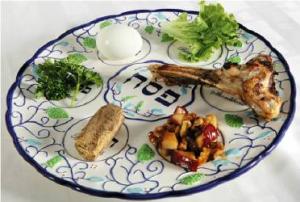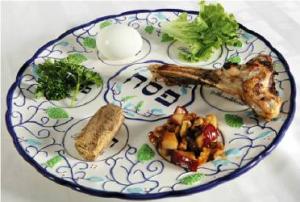3/8/13 Friday – The Rhythm of Jewish Time
HTTP/1.1 200 OK Server: nginx Content-Type: text/html; charset=utf-8 Etag: “1363019884-0″ Content-Language: en Link: ; rel=”shortlink”,; rel=”canonical” X-Generator: Drupal 7 (https://drupal.org) Cache-Control: public, max-age=300 Expires: Sun, 19 Nov 1978 05:00:00 GMT Vary: Cookie,Accept-Encoding Set-Cookie: SESSa5d7e84b9a220884d7221ee268525755=deleted; expires=Sun, 11-Mar-2012 16:38:05 GMT; path=/; domain=.reformjudaism.org; httponly Last-Modified: Mon, 11 Mar 2013 16:38:04 GMT X-AH-Environment: prod Content-Length: 102180 Date: Mon, 11 Mar 2013 16:38:06 GMT X-Varnish: 4233736747 Age: 0 Via: 1.1 varnish Connection: keep-alive X-Cache: MISS “Let all who are hungry come…” Passover: A Special Opportunity for Jews by Choice | Reform Judaism
By Rabbi Howard A. Berman, 3/08/2013
Reform Judaism’s deep commitment to outreach and inclusion, both of Jews–by–choice and interfaith and multi–cultural families, is a core value rooted in the historic development of our Movement. The early pioneers of liberal Judaism were broad thinkers who sought to reclaim the universal message of our biblical prophets, teaching that the Torah’s ethical ideals were meant to embrace all people. In today’s pluralistic URJ family, the Classical Reform voice continues to uphold the historic spiritual principles and distinctive worship traditions of our heritage, and seeks to express this focus in its thought and practice. In no context is this perspective more clearly reflected than in the new ways that our Movement came to understand the meaning and observance of Passover, early in its history in the 19th century.
While the traditional interpretations of the Exodus in the Haggadah tended to emphasize the particular meaning of the story for Jews themselves, the early Reformers expanded its timeless messages and themes to proclaim a universal ideal for all humanity. They gave new significance to the ancient invitation “let all who are hungry, come and eat!” The memory of slavery and the promise of liberation became a paradigm for human history in general, with the Jewish experience broadened to serve as a symbolic hope for oppressed people everywhere. The link of ancient memory and future redemption was fundamental to the historic Haggadah text, but had previously focused on the coming arrival of the Messiah and the rebuilding of the Temple in Jerusalem. Reform Judaism radically expanded this concept to envision a time when all men and women would be freed from every form of tyranny and suffering. The great Classical Reform hymn, “God of Might” reframed the literalist aspirations of the “Adir Hu” text that concludes the seder, replacing the previous emphasis on the rebuilding of the ancient Temple with the broader, universal hope that one day, the “chains of all who labored in thrall would be riven.”
This inclusive, accessible understanding of Passover’s meaning has special significance for those who choose to join themselves to the faith and community, history and destiny of the Jewish people…or who share that history and destiny with their loved ones. Because its story is a universal one, the Haggadah’s challenge that we should remember the Exodus as if each of us personally were redeemed from slavery in Egypt becomes a powerful way to claim this historic legacy for oneself. The liberation from previous spiritual struggle, the journey through the wilderness, and the revelatory encounter at Sinai all become a symbolic model for the individual experience of anyone whose own personal wanderings have led them to choose Judaism. The seder itself, originally conceived as a “crash course” in basic Judaism, can become an intensive review of our entire history, for either a new participant or a diverse gathering of family and friends of different faiths and backgrounds, to say nothing of those countless lifelong Jews who could use a refresher course!
A Classical Reform perspective would hold that while our liberal religious emphasis should be on the broad ethical values of Passover, the rich symbolism of its various rituals and observances also can be profoundly meaningful ways to connect and affirm these ideals. A conscious, mindful decision to avoid eating bread during Passover week offers the opportunity to reflect constantly on the contemporary implications of freedom and liberation in our daily lives. This practice also reminds us of the reality that many in our world must abstain from eating bread every day-not out of religious choice, but because of their enslavement in poverty and hunger.
All of us–those born into the Jewish community, those whose own spiritual journeys have led them to our faith, and those who share their love and lives with Jews-can accept Passover’s broad, inclusive invitation to come and eat at the table of freedom. We can all embrace the memory of oppression and liberation as our own. This great challenge is proclaimed in the opening words of the seder:
“Now in the presence of loved ones and friends, before us the emblems of festive rejoicing, we gather for our sacred celebration. With the household of Israel, our elders and young ones, linking and bonding the past with the future, we heed once again the Divine call to service…living our story that is told for all people…whose shining conclusion is yet to unfold!”
Rabbi Howard A. Berman is the Executive Director of the Society for Classical Reform Judaism. The SCRJ is the international voice of advocacy for the preservation and creative renewal of the liberal spiritual principles and the distinctive worship traditions of the Reform Jewish heritage we all share. Among the Society’s many programs throughout America and in Israel, is its current collaboration with the Central Conference of American Rabbis in the preparation of a new contemporary language revision of the beloved Union Haggadah, the historic liturgy that inspired generations of Reform Jews with a broad, inclusive interpretation of the Passover story. Please visit the SCRJ at www.renewreform.org.
Submit a blog post
Share your voice: ReformJudaism.org accepts submissions to the blog for consideration.
HTTP/1.1 200 OK Server: nginx Content-Type: text/html; charset=utf-8 Etag: “1363019884-0″ Content-Language: en Link: ; rel=”shortlink”,; rel=”canonical” X-Generator: Drupal 7 (https://drupal.org) Cache-Control: public, max-age=300 Expires: Sun, 19 Nov 1978 05:00:00 GMT Vary: Cookie,Accept-Encoding Set-Cookie: SESSa5d7e84b9a220884d7221ee268525755=deleted; expires=Sun, 11-Mar-2012 16:38:05 GMT; path=/; domain=.reformjudaism.org; httponly Last-Modified: Mon, 11 Mar 2013 16:38:04 GMT X-AH-Environment: prod Content-Length: 102180 Date: Mon, 11 Mar 2013 16:38:06 GMT X-Varnish: 4233736747 Age: 0 Via: 1.1 varnish Connection: keep-alive X-Cache: MISS “Let all who are hungry come…” Passover: A Special Opportunity for Jews by Choice | Reform Judaism
By Rabbi Howard A. Berman, 3/08/2013
Reform Judaism’s deep commitment to outreach and inclusion, both of Jews–by–choice and interfaith and multi–cultural families, is a core value rooted in the historic development of our Movement. The early pioneers of liberal Judaism were broad thinkers who sought to reclaim the universal message of our biblical prophets, teaching that the Torah’s ethical ideals were meant to embrace all people. In today’s pluralistic URJ family, the Classical Reform voice continues to uphold the historic spiritual principles and distinctive worship traditions of our heritage, and seeks to express this focus in its thought and practice. In no context is this perspective more clearly reflected than in the new ways that our Movement came to understand the meaning and observance of Passover, early in its history in the 19th century.
While the traditional interpretations of the Exodus in the Haggadah tended to emphasize the particular meaning of the story for Jews themselves, the early Reformers expanded its timeless messages and themes to proclaim a universal ideal for all humanity. They gave new significance to the ancient invitation “let all who are hungry, come and eat!” The memory of slavery and the promise of liberation became a paradigm for human history in general, with the Jewish experience broadened to serve as a symbolic hope for oppressed people everywhere. The link of ancient memory and future redemption was fundamental to the historic Haggadah text, but had previously focused on the coming arrival of the Messiah and the rebuilding of the Temple in Jerusalem. Reform Judaism radically expanded this concept to envision a time when all men and women would be freed from every form of tyranny and suffering. The great Classical Reform hymn, “God of Might” reframed the literalist aspirations of the “Adir Hu” text that concludes the seder, replacing the previous emphasis on the rebuilding of the ancient Temple with the broader, universal hope that one day, the “chains of all who labored in thrall would be riven.”
This inclusive, accessible understanding of Passover’s meaning has special significance for those who choose to join themselves to the faith and community, history and destiny of the Jewish people…or who share that history and destiny with their loved ones. Because its story is a universal one, the Haggadah’s challenge that we should remember the Exodus as if each of us personally were redeemed from slavery in Egypt becomes a powerful way to claim this historic legacy for oneself. The liberation from previous spiritual struggle, the journey through the wilderness, and the revelatory encounter at Sinai all become a symbolic model for the individual experience of anyone whose own personal wanderings have led them to choose Judaism. The seder itself, originally conceived as a “crash course” in basic Judaism, can become an intensive review of our entire history, for either a new participant or a diverse gathering of family and friends of different faiths and backgrounds, to say nothing of those countless lifelong Jews who could use a refresher course!
A Classical Reform perspective would hold that while our liberal religious emphasis should be on the broad ethical values of Passover, the rich symbolism of its various rituals and observances also can be profoundly meaningful ways to connect and affirm these ideals. A conscious, mindful decision to avoid eating bread during Passover week offers the opportunity to reflect constantly on the contemporary implications of freedom and liberation in our daily lives. This practice also reminds us of the reality that many in our world must abstain from eating bread every day-not out of religious choice, but because of their enslavement in poverty and hunger.
All of us–those born into the Jewish community, those whose own spiritual journeys have led them to our faith, and those who share their love and lives with Jews-can accept Passover’s broad, inclusive invitation to come and eat at the table of freedom. We can all embrace the memory of oppression and liberation as our own. This great challenge is proclaimed in the opening words of the seder:
“Now in the presence of loved ones and friends, before us the emblems of festive rejoicing, we gather for our sacred celebration. With the household of Israel, our elders and young ones, linking and bonding the past with the future, we heed once again the Divine call to service…living our story that is told for all people…whose shining conclusion is yet to unfold!”
Rabbi Howard A. Berman is the Executive Director of the Society for Classical Reform Judaism. The SCRJ is the international voice of advocacy for the preservation and creative renewal of the liberal spiritual principles and the distinctive worship traditions of the Reform Jewish heritage we all share. Among the Society’s many programs throughout America and in Israel, is its current collaboration with the Central Conference of American Rabbis in the preparation of a new contemporary language revision of the beloved Union Haggadah, the historic liturgy that inspired generations of Reform Jews with a broad, inclusive interpretation of the Passover story. Please visit the SCRJ at www.renewreform.org.
Submit a blog post
Share your voice: ReformJudaism.org accepts submissions to the blog for consideration.




